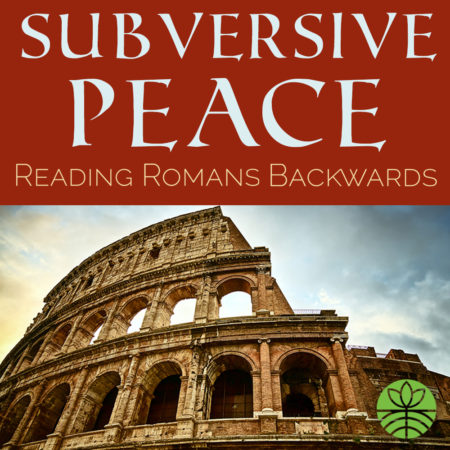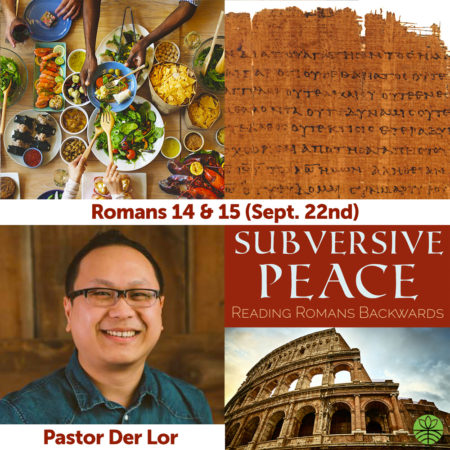Sermons on Unity (Page 2)
Privilege Displaced
Romans chapter 9 has been misunderstood as a passage about individual election, predestination, and personal salvation. But Romans is not a book of abstract, systematic theology. Romans is a pastoral letter written to a church with factions along cultural and ethnic lines. Paul is writing to the so-called “Weak” and “Strong” to reframe the stories they’ve been living in. Privilege was an key part of what was driving these groups apart, dividing the Body of Christ. Today in the U.S.,…
Christoformity, Glory, Hope
These three words, Christoformity, Glory, and Hope, represent the basic arch of Paul’s theological conviction for a unified multiethnic family of Jesus followers. Through what Scott McKnight calls “Christoformity” or the process of becoming like Christ in self-sacrificing ways, the Weak and the Strong – Jews and Gentiles–bring Glory to God when they give up their privileges and preferences for unity with the other. And because of this newly unified family of Jews and Gentiles, God will be glorified and…
The Household of Christ
In chapters 14 and 15, the apostle Paul/Saul directly addresses the conflict between factions in the house churches of Rome. Namely, he points out that there is division among them along cultural and ethnic lines after the Jewish disciples who were expelled from Rome begin returning only to find a gentile-dominated church that no longer feels like home. The factions, which Beverly Roberts Gaventa lovingly refers to as the “lettuce-eaters” and the “garbage-bellies,” are deriving their identities from sources other…
Subversive Peace
This is the first message in a new teaching series, exploring the letter to the church at Rome, written by the apostle Paul/Saul. In this message, Pastor T. C. introduces the series and explains why reading Romans “backwards” helps keep the theology of the letter in its social and ecclesial contexts, as well as making it more easily applicable in our contemporary contexts.
Kingdom Hybridity
In the second half of chapter 2, Paul teaches that the cross of Jesus does more than just reconcile people to God, it also reconciles people groups to one another. Namely, Jesus’s life of self-sacrificial love shows us the way to peace and tears down the divisions between people of different cultures. The Way of Jesus creates an entirely new kind of human community. But, multiethnic churches might fall into the trap of thinking “multiculturalism” is what this text prescribes.…



